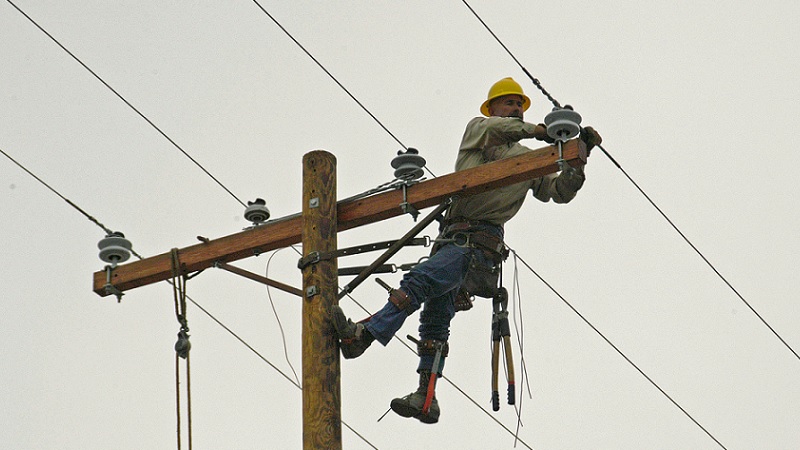A new FIRB regime to keep the national security hawks caged
August 25 2016

By James Laurenceson
Note: This article appeared in the Australian Financial Review, August 25 2016.
Last week Treasurer Scott Morrison officially killed off the prospect of foreign investors taking a 50.4 per cent share of the lease to operate NSW electricity distributor Ausgrid, citing national security risks.
The two bidders at the final hurdle were Chinese but the Prime Minister, Treasurer and other senior government ministers said that the same decision would have been made no matter which country they had been from. Cold Warriors take note.
The Ausgrid decision was excruciating for its apparent inconsistencies.
Even local infrastructure investors such as QIC and Spark Infrastructure said they found the process bewildering and pleaded for more clarity in future deals.
State Grid and Cheung Kong Infrastructure (CKI) had only submitted bids after being invited to do so by the NSW government and the Foreign Investment Review Board (FIRB). As recently as March they had still been in our security agencies' good books.
Both companies also already own majority stakes in Ausgrid's equivalents in Victoria and South Australia, supplying power to the Melbourne CBD, Melbourne Airport and Woomera, home of the Royal Australian Air Force test range.
Other countries don't mind
And countries like-minded in their security allegiances have had no qualms about taking their money.
While the UK may have delayed making a final decision about whether Chinese investment will be allowed in the Hinkley nuclear project, CKI owns 100 per cent of the company that supplies power to London. Presumably that means the lights and heat in the Parliament at Westminster, the public service offices of Whitehall, the grand halls of Buckingham Palace, not to mention MI5 across the Thames, are all kept on by a company now considered potentially dangerous by Australia.
Closer to home, CKI also owns 100 per cent of the distributor that supplies power to the New Zealand capital, Wellington.
One can only wonder what critical information our security agencies have that MI6 and NZSIS are missing. But time to move on.
A new buyer for Ausgrid must be found. The NSW government is also still keen on selling part of the lease to another power distributor, Endeavour Energy.
Meanwhile, other types of infrastructure assets are soon expected to come to market, including ports in Melbourne and Fremantle.
And with the federal government's asset recycling program providing a powerful incentive, the pipeline of infrastructure sales will continue to flow.
Who will buy the assets?
For state governments seeking to ensure that taxpayers receive the highest possible price for these assets, Chinese companies with their pockets full of capital make attractive buyers.
But true to public choice theory, those who would like to restrict Chinese investment sense an opportunity to advance their own self-interest and influence.
Peter Jennings, executive director of the Australian Strategic Policy Institute (ASPI) is agitating for FIRB to be removed from the auspices of Treasury where it has been located for the past 40 years. In a submission to a recent Senate inquiry into the foreign investment framework, ASPI recommended that FIRB should report to the national security committee of cabinet.
There is a much simpler solution: move towards a foreign investment approvals process based on a negative list.
If an asset is not on the list then foreign investment is considered welcome with no strings attached beyond the laws and regulations that apply to domestic companies.
Such assets might include roads, railways, bridges, gas pipelines, airports and maritime ports.
Last week Jennings said that he hoped Australia had learned something from the experience of leasing the Port of Darwin to a Chinese company for 99 years.
Indeed. What we learned was that the Department of Defence, ASIO and the Australian Defence Forces had no security concerns with the deal whatsoever.
A way forward
Making an appearance on the negative list might be electricity generation, transmission and distribution, along with telecommunications.
This does not mean that foreign investment in these assets would be impossible. Rather, owners would be required to liaise with FIRB and settle on acceptable conditions before putting them up for sale.
The Chinese would be entirely comfortable with this. It would be non-discriminatory and China is itself moving towards defining a negative list as the basis for investment treaties with the US and EU.
A final thought to help frame the discussion about where to go next: there's a popular line that economists and strategists are at opposite ends of the spectrum in their attitudes towards Chinese investment.
They shouldn't be: the provision of national security is underpinned by economic prosperity.
Consider this: since 2010 China has bought $512 billion of Australian goods and services. Put another way, our exports to China have funded our entire defence budget over the last six years three times over.
With both sides of politics committed to a defence spending target of 2 per cent of GDP, it is plainly in Australia's national security interests for the economy to grow as quickly as possible.
This will only happen by deeply engaging with China on trade and encouraging Chinese investment on the basis of a negative list.
Pretending that we can rely on traditional sources of investment such as the UK is foolish. Last year alone UK investors pulled $70 billion more out of Australia than they put in.
The emergence of 850 million more middle-class Chinese by 2030 is the best news on Australia's economic horizon. It's good news for national security too.
